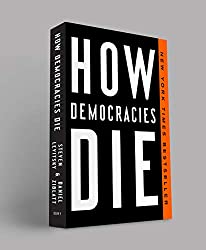
Rating: 7.8/10.
The classical theory of emotions says that at least a few basic emotions are universal (happiness, fear, sadness, surprise, disgust, anger). However, this “essentialist” theory is put into question because it is difficult to find any consistent physiological fingerprint for these emotions; there is a lot of variation and interpretation is subject to context. People from other cultures don’t recognize the same emotion categories that Americans do.
In Barrett’s theory of constructed emotion, emotions arise from “interoception”, which is the body’s perception of energy levels, future energy needs, and what’s going on inside the body. Then, emotions are categories within this space that are learned and culture dependent (similar to words). When we perceive an emotion, we are categorizing an experience into one of our emotion concepts. Thus, emotions are a social reality like money or laws: they don’t exist physically but they exist because everybody agrees on their definition. Constructions of emotions are dependent on perspective (eg: is it a flower or weed?) rather than universal (eg: is this made of tin or copper?).
People with high EQ have finer granularity in categorizing emotions, while a low EQ person would only describe feeling pleasant or unpleasant. A good way to improve EQ is to learn more emotion words and concepts. You might sometimes misattribute physical discomfort (illness, being hungry or tired) as emotions, so eating healthy and sleeping well improves your mood.
The constructed emotion theory has various implications to other areas, although this is still speculative. Mental illnesses like depression and anxiety can be seen as disorders in the brain’s prediction mechanism and regulation of body budget. In law, it’s often relevant whether the perpetrator feels remorse and whether he was affected by the heat of emotion, but these questions may be misguided. In animal psychology, it’s common to feel that animals have emotions, but this is a mental inference fallacy because the human is just projecting his emotional constructions. For the animal to experience emotion requires them to categorize them, which they don’t do.
Overall this book presents many novel ideas about emotions and is written by an eminent researcher in the field. However, the book focuses entirely on the author’s own theory of constructed emotion. There are other theories of emotion in the literature, and constructed emotion is far from the only accepted view. I would’ve preferred a more balanced treatment instead of a one-sided argument that promotes the author’s own theory above all others.



